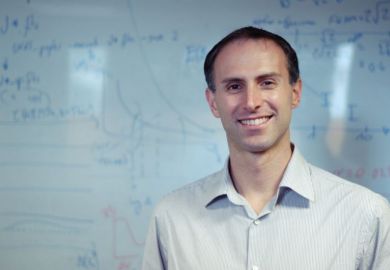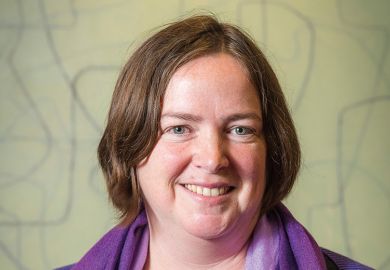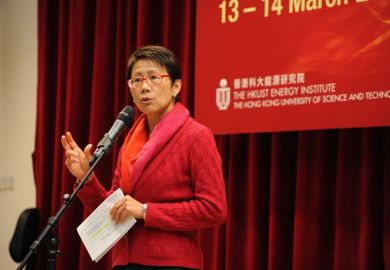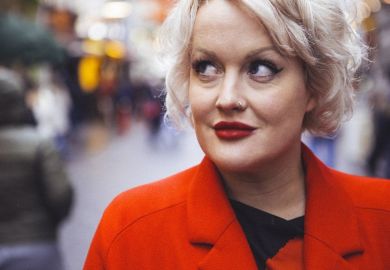Caroline Criado Perez is a writer, broadcaster and feminist campaigner. She successfully campaigned to get a female historical figure on British banknotes, to get Twitter to introduce a “report abuse” button, and to get the first statue of a woman in Parliament Square. Her book, Invisible Women: Exposing Data Bias in a World Designed for Men, won the Royal Society’s Science Book Prize in 2019 and has now been published in paperback.
Where and when were you born?
I was born in Brazil in 1984.
How has this shaped you?
I left Brazil when I was one, so I don’t think it necessarily had a huge impact on me. But certainly growing up in lots of different countries around the world had a fairly significant impact in that I’ve never felt particularly nationalistic, because I’ve not developed strong ties to just one country.
What was it like studying at the University of Oxford as a mature student?
In some ways it was amazing because I was old enough to really appreciate how lucky I was. I think if I had gone when I was 18, I wouldn’t have understood what a privilege it is to get to sit around in libraries all day, reading and learning and discussing your thoughts with incredibly intelligent people.
What impact did the study of language and gender have on you?
It completely changed my life. It was going to Oxford that turned me into a feminist. Before I went to Oxford I had not at all been a feminist; I thought feminism was stupid and made women look bad. I thought women had equal rights now and feminism was just an excuse for people who didn’t want to put in the work and didn’t want to push themselves. But then I had to pick up a book called Feminism and Linguistic Theory by Deborah Cameron and write an essay about language and gender. That essay and book really changed everything for me – it forced me to have this realisation that I had this male bias going on in my own head that I had never noticed. There is a section [in the book] on the generic masculine in language – using “he” to mean “he or she” and “man” to mean humankind – and she points out that studies have shown that when people hear these words they picture a man. I couldn’t believe I’d never noticed it before. It was so shocking to me, especially because I am not a man. It opened up all sorts of questions in my mind, because I realised that it wasn’t just when I heard these words, it was also when I heard gender-neutral words like lawyer, doctor, professor, writer, journalist, I was always picturing men.
Your book, Invisible Women, exposes the sex and gender data gap. Why do you think so much academic research revolves around men?
Very simply because of this very prevalent unconscious bias where we think of men as representative of universal humanity...So men get to be gender-neutral and women have a gender, which obviously is nonsense. We all have this bias and it is perpetuated by everything around us, from the words we use, to the films we see, to the statues in our public spaces, to what we write about and read about in the media. Researchers are just as subject to this bias as everyone else. Researchers have actually said to me, “we can’t include women because the menstrual cycle will interfere with the results”. Well, yeah, it will interfere with the results and that’s why you need to include it...Another excuse that I hear is “we’ll start off with men and if we find anything interesting we’ll add women at a later date”, which again is a very clear evocation of this idea that men are the universal template and women are a complicating factor. There was a study that I came across in my research that exposed male and female cells to oestrogen and then exposed them to a virus. And the female cells were able to use the oestrogen to fight off the virus and the male cells were not and therefore could not fight off the virus. When I read a study like that I think how many treatments we have missed out on for women just because they didn’t work for men at the cell trial stage.
How do you think this will change?
I don’t think it’s going to change without a lot of work and without regulations and standards being put into place. That can be at government level, and I would argue that it should be, but can also be things such as academic journals and funding bodies...saying that they won’t accept or fund studies that don’t have sex-disaggregated data. I think that should be industry standard. My hope is also that as the conversation widens and more people are discussing it, this will become something that seems completely logical.
Girls outperform boys at school and at university, but there are more men at the professorial and leadership level in academia. How do you think the higher education sector can improve on female representation?
There needs to be much more awareness of women’s unpaid care burden within academia. That’s a huge problem that just isn’t factored into the career structure at all as far as I could find from my research. That is going to be one of the major obstacles to women being able to put in the type of work that you have to be able to put in in order to be able to achieve a permanent position. But it’s also about addressing systems that don’t account for bias. What I find very interesting about this shift from women doing really well in school and university and then doing less and less well is that the point at which they start doing less and less well is when things become less objective – the point at which your essays are not just being blind marked. When you get into the job market it’s much more about who do you know, do you like that person, do you feel that their research is worthwhile. Academia basically works on the principle that humans are objective and it’s just not the case. If one area should know that it’s academia, because they’re the ones doing the bloody research that shows it!
ellie.bothwell@timeshighereducation.com
Appointments
Christine McLoughlin has been named the next chancellor of the University of Wollongong. She is currently chair of leading financial services business Suncorp Group, Venues NSW and the Minerva Network, which mentors and supports Australia’s professional female athletes. Retiring chancellor Jillian Broadbent said she had “every confidence Ms McLoughlin will continue the work of guiding this great institution towards an exciting future”. Among Ms McLoughlin’s tasks will be helping to select the university’s next vice-chancellor, as Paul Wellings is due to retire next year.
Dame Deirdre Hutton has been appointed chancellor of Cranfield University. An honorary graduate and former pro-chancellor of the university, she will assume the role on 1 August. Dame Deirdre is currently chair of the Civil Aviation Authority and honorary vice-president of the Trading Standards Institute. She said that she was honoured to be appointed to a university with “such a distinguished record of achievement in postgraduate education and research. The global impact of Cranfield’s work with business and government is truly exceptional.”
Nigel Healey is now professor of international higher education and associate vice-president of global engagement at the University of Limerick. He was previously vice-chancellor of Fiji National University.
Stephan Riek has been appointed dean of graduate research at the University of the Sunshine Coast. He was previously deputy dean of the University of Queensland Graduate School and is a researcher in human movement and motor neuroscience.
Kristin Sobolik has been named chancellor of the University of Missouri-St Louis. Currently interim chancellor and provost, she joined the university in 2017 and was made executive vice-chancellor a year later.
Register to continue
Why register?
- Registration is free and only takes a moment
- Once registered, you can read 3 articles a month
- Sign up for our newsletter
Subscribe
Or subscribe for unlimited access to:
- Unlimited access to news, views, insights & reviews
- Digital editions
- Digital access to THE’s university and college rankings analysis
Already registered or a current subscriber?




